Building a Natural Supplement Stack for Dissociation Support
Introduction
When you live with dissociation, the world can feel distant — as if you’re behind glass, watching life instead of living it. Emotions flatten, thoughts slow, and sometimes your body doesn’t even feel like it belongs to you. It’s a survival mechanism — your brain’s way of protecting you from overwhelm — but when it becomes chronic, it robs you of connection and clarity.
While therapy and nervous system work are essential for recovery, there’s also a biochemical dimension to dissociation that can’t be ignored. Chronic stress, trauma, and exhaustion change the brain’s chemistry, deplete essential nutrients, and disrupt the systems responsible for presence and emotional regulation.
The good news is that you can support this healing process naturally. By building a targeted supplement stack that addresses inflammation, neurotransmitter balance, mitochondrial energy, and gut health, you can help your brain and body reconnect from the inside out.
This article will guide you through how to design a supplement routine that supports clarity, emotional stability, and grounded awareness — one that works with your nervous system, not against it 🌿✨.
Looking for supplements for This? Click here.
Understanding the Biology of Dissociation 🧬

Dissociation isn’t just “spacing out.” It’s a full-body response orchestrated by your autonomic nervous system when it perceives danger that can’t be escaped.
When stress becomes overwhelming, the brain’s fight-or-flight system (sympathetic branch) stays active for too long. Eventually, the body flips into freeze mode, shutting down awareness and emotion to conserve energy.
Over time, this leads to:
Low serotonin and dopamine (mood and motivation)
Fatigue from mitochondrial dysfunction
Neuroinflammation that clouds focus
Nutrient depletion due to chronic stress
Impaired vagus nerve signaling between brain and body
A natural supplement stack can’t replace therapy, but it can address these biochemical disruptions — creating the foundation for mental clarity, energy, and emotional regulation.
The Four Pillars of a Dissociation Support Stack 🌿
When building a supplement routine, it’s helpful to think in terms of systems, not symptoms. Dissociation affects the entire mind–body network, so support should target four core areas:
Neurotransmitter balance – Restoring serotonin, dopamine, and GABA to promote calm and focus.
Inflammation control – Reducing neuroinflammation that dulls cognition and emotion.
Mitochondrial energy – Recharging cellular energy to bring vitality and presence.
Gut–brain health – Healing the microbiome that regulates mood and nervous system stability.
Let’s explore how each system works — and which natural supplements can help rebalance them.
Restoring Neurotransmitter Balance ⚡
Your emotions and focus depend on a delicate orchestra of neurotransmitters — serotonin, dopamine, norepinephrine, and GABA. Under chronic stress or trauma, these systems burn out.
Serotonin drops, leaving you numb or detached. Dopamine declines, killing motivation. GABA (the brain’s calming chemical) weakens, allowing anxiety to spiral.
Certain nutrients and amino acids can help rebuild this chemical harmony.
5-HTP (5-hydroxytryptophan)
5-HTP is the direct precursor to serotonin. Supplementing it helps restore serotonin levels naturally, which can improve mood, reduce emotional flatness, and stabilize sleep. Pairing it with vitamin B6 enhances conversion efficiency.
L-Theanine
Found in green tea, L-theanine increases alpha brain waves — the same ones seen in meditative calm. It balances GABA, serotonin, and dopamine while reducing cortisol. This creates relaxed alertness without sedation, ideal for grounding after dissociation.
Magnesium Glycinate
Magnesium is known as the “anti-stress mineral.” It supports GABA activity and reduces hypervigilance. Chronic stress depletes it rapidly, which can heighten anxiety and emotional dysregulation. Magnesium glycinate is the most bioavailable and gentle form for nervous system health.
B Vitamins
The B-complex family (especially B6, B9, and B12) supports neurotransmitter synthesis and myelin repair. B12 is particularly important for those experiencing brain fog, fatigue, or memory issues.
Together, these nutrients help the brain regain its natural rhythm — the biochemical basis for presence and connection.
Looking for supplements for This? Click here.
Reducing Neuroinflammation 🔥
Dissociation often comes with “mental fog” — that hazy, disconnected feeling that makes it hard to think clearly or stay in your body. This is partly due to neuroinflammation — the activation of immune cells in the brain that disrupt neural communication.
Reducing inflammation helps lift this fog and reestablishes the brain’s ability to process sensory and emotional data smoothly.
Curcumin
The active compound in turmeric, curcumin is one of the most powerful natural anti-inflammatories known. It reduces cytokines (inflammatory molecules like IL-6 and TNF-alpha) and boosts BDNF (Brain-Derived Neurotrophic Factor), which supports neuroplasticity — your brain’s ability to reconnect and adapt.
For better absorption, look for curcumin combined with black pepper extract (piperine).
Omega-3 Fatty Acids
Omega-3s (EPA and DHA) form the foundation of brain cell membranes and help reduce neuroinflammation. They improve mood, memory, and focus — and are especially important if you experience emotional blunting or low motivation.
Cold-water fish oil or algae-based DHA supplements are excellent options.
N-Acetyl Cysteine (NAC)
NAC helps restore glutathione, the body’s master antioxidant. It protects neurons from oxidative stress, supports detoxification, and normalizes glutamate — a neurotransmitter often dysregulated in trauma.
Vitamin D
Vitamin D acts like a neurosteroid, influencing serotonin production and immune balance. Low levels are strongly associated with depression and cognitive fog. Supplementing it can improve energy and emotional stability, especially in winter or low-sun environments.
These anti-inflammatory compounds work synergistically to reduce brain fatigue and help the mind reengage with reality.
Supporting Mitochondrial Energy ⚙️
Dissociation often comes with physical and mental exhaustion. You might sleep but still wake up drained, or feel like you’re moving through molasses. That’s a sign of mitochondrial dysfunction — when your cells can’t produce enough energy (ATP) to sustain normal brain and nervous system function.
Mitochondria are essential for awareness, focus, and mood stability. Supporting them can dramatically improve vitality and cognitive clarity.
CoQ10 (Coenzyme Q10)
CoQ10 is the spark plug of mitochondrial energy production. It helps convert nutrients into ATP and protects mitochondria from oxidative stress. Supplementing CoQ10 can restore cellular energy, reduce fatigue, and improve mental sharpness — key for reconnecting after dissociation.
Acetyl-L-Carnitine (ALCAR)
ALCAR transports fatty acids into mitochondria, fueling ATP synthesis. It also boosts dopamine and acetylcholine, neurotransmitters tied to motivation and memory. People often describe it as “lifting the brain fog” within days.
Alpha-Lipoic Acid (ALA)
ALA regenerates antioxidants like CoQ10 and glutathione while improving insulin sensitivity in the brain. This means more stable energy and fewer mood crashes.
Rhodiola Rosea
An adaptogen that reduces fatigue and regulates cortisol. It increases oxygen utilization in cells, helping your brain stay alert and resilient under stress.
Together, these compounds help switch your body from energy conservation (freeze) to energy generation (flow).
Healing the Gut–Brain Axis 🌾
Your gut and brain are in constant communication through the vagus nerve and gut microbiome. When the gut is inflamed or imbalanced — a common side effect of chronic stress — it can amplify anxiety, brain fog, and emotional detachment.
Healing the gut is therefore essential for grounding and mental clarity.
Probiotics
Strains like Lactobacillus rhamnosus, Bifidobacterium longum, and Bifidobacterium infantis have been shown to support serotonin production and reduce anxiety. Probiotics also improve vagus nerve tone, helping your nervous system shift from survival to safety.
Prebiotics
Prebiotics are fibers that feed beneficial bacteria. They help restore microbial diversity and promote the production of butyrate, a compound that reduces inflammation in both the gut and brain. Foods like garlic, oats, asparagus, and bananas provide natural prebiotics.
Chamomile and Peppermint
These herbs calm the digestive tract and reduce the physical tension that often accompanies emotional stress. Chamomile also supports GABA activity in the brain, linking gut comfort to emotional ease.
A balanced microbiome equals a calmer mind — one less likely to spiral into detachment.
Combining Supplements into a Cohesive Stack 🧩
Once you understand how each category supports your system, the next step is integration. A well-designed dissociation support stack is gentle, cumulative, and adaptive. It builds safety into your biology rather than forcing stimulation or sedation.
Here’s a general example of how a natural stack could be structured (always adjust for your needs and professional guidance):
Morning Stack (energy + focus):
CoQ10 (100–200 mg)
Acetyl-L-Carnitine (500–1000 mg)
Omega-3 (1000 mg combined EPA/DHA)
B-complex vitamin
Rhodiola Rosea (100–200 mg)
Afternoon Support (calm + clarity):
Curcumin (500 mg with black pepper)
Magnesium glycinate (200 mg)
Vitamin D (2000–5000 IU, with a meal)
Evening Recovery (relaxation + reconnection):
5-HTP (50–100 mg with vitamin B6)
Chamomile tea
Lavender aromatherapy or capsule (80 mg Silexan)
Probiotic blend (multi-strain, 10–50 billion CFU)
This rhythm balances stimulation and restoration — energizing during the day, grounding at night.
Layering with Lifestyle: Supplements + Practices 🌙
Supplements alone can’t replace the body’s need for safety signals. They work best when paired with daily nervous system regulation.
Breathwork: Slow, rhythmic breathing activates the vagus nerve and enhances supplement absorption by improving blood flow.
Want to try Breathwork? Click Here.
Sleep hygiene: Most brain repair happens during deep sleep, when BDNF and neurotransmitters replenish.
Movement: Even gentle activity (like walking or yoga) improves mitochondrial function and reduces inflammation.
Grounding rituals: Pairing your supplement routine with calming rituals — tea, scent, music — reinforces consistency and presence.
Your supplement stack becomes more than a regimen — it becomes a daily message to your body: You’re safe enough to heal.
Healing Takes Layers, Not Leaps 💫
It’s tempting to look for a single supplement that “fixes” dissociation, but healing isn’t linear. Each nutrient, herb, or compound plays a subtle role in supporting systems that have been overwhelmed.
At first, you might just notice improved sleep or slightly more focus. Over time, emotions may return in gentle waves. The fog lifts. You start feeling your body again.
That’s how true healing works — cell by cell, connection by connection.
Safety and Integration ⚠️
When combining supplements, always start low and increase gradually. More is not better when dealing with a sensitive nervous system.
Consult a healthcare professional if you’re taking medications, especially antidepressants (SSRIs or SNRIs), as certain supplements like 5-HTP or curcumin may interact with them.
The goal is to nourish, not override — to give your brain and body the building blocks they need to remember how to self-regulate.
From Disconnection to Grounded Presence 🌿💛
Dissociation can make you feel powerless — like life is happening at a distance. But by rebuilding your biology from within, you help your brain and body remember what safety feels like.
A carefully crafted supplement stack supports that process. It replenishes what trauma depleted: serotonin for calm, magnesium for relaxation, CoQ10 for energy, probiotics for connection, and curcumin for clarity.
Each compound contributes a piece of the puzzle — together creating an internal environment where presence becomes natural again.
Because when your cells feel safe, your consciousness follows. The fog clears. The world brightens. And you realize you’ve been here all along 🌸.
Looking for online therapy ? Click Here.
References
Lanius, R. A., et al. (2018). The Neurobiology and Treatment of Trauma-Related Dissociation. Routledge.
Lopresti, A. L. (2018). “Nutritional and herbal interventions for depression and anxiety.” Nutrients, 10(9): 1223.
Hewlings, S. J., & Kalman, D. S. (2017). “Curcumin and human health.” Foods, 6(10): 92.
Benton, D., & Donohoe, R. (2011). “The influence of vitamins on mood.” Psychopharmacology, 214(1): 1–12.
Cryan, J. F., et al. (2019). “The microbiota–gut–brain axis.” Physiological Reviews, 99(4): 1877–2013.
Panahi, Y., et al. (2016). “Curcumin and oxidative stress.” Complementary Therapies in Medicine, 29: 1–7.
Kennedy, D. O. (2016). “B vitamins and the brain.” Nutrients, 8(2): 68.
Mancini, A., et al. (2018). “CoQ10 and neurological disorders.” Antioxidants, 7(12): 174.
Bravo, J. A., et al. (2011). “Lactobacillus and emotional behavior.” PNAS, 108(38): 16050–16055.
van der Kolk, B. A. (2014). The Body Keeps the Score. Viking.
Related Posts
-

Why Co-Dependency Feels Draining: Adrenal Fatigue and Supplements That Help
The adrenal glands are small but powerful organs that sit above your kidneys, acting as your body’s built-in stress managers. They produce hormones like cortisol and adrenaline that help regulate energy, mood, and resilience. When they’re overworked from chronic stress or emotional exhaustion, fatigue and imbalance follow. Supporting adrenal health naturally can help restore calm, energy, and hormonal balance. 🌿⚡
-

The Link Between Anxiety, Co-Dependency, and Natural Support
Anxiety feels like living in constant alert mode—your heart races, your thoughts loop, and your body can’t find peace. It’s the nervous system’s way of preparing for danger, even when none exists. Understanding what’s happening in your mind and body is the first step toward calming the storm and restoring balance. 🌿💫
-

Supplements That Support Dopamine and Serotonin in Co-Dependent Patterns
Serotonin is the neurotransmitter of calm, confidence, and contentment. When it’s balanced, you feel peaceful and emotionally grounded. When it’s low, anxiety, mood swings, and emotional dependence take over. By understanding serotonin’s role in emotional health—and how to support it naturally—you can rebuild inner stability, improve relationships, and cultivate lasting happiness from within. 🌞💫
-

How Emotional Exhaustion in Codependency Impacts the Nervous System
The nervous system is the body’s communication network, connecting the brain to every organ and muscle. It regulates stress, mood, and emotion through a delicate balance of electrical and chemical signals. When overwhelmed, it can become dysregulated—leading to fatigue, anxiety, and emotional imbalance. Understanding how to calm and strengthen the nervous system is key to healing from chronic stress and emotional burnout. ⚡🌿
-

What Is Co-Dependency? The Role of Brain Chemistry and Stress
Stress is more than a feeling—it’s a full-body experience that begins in the brain and ripples through every cell. When cortisol surges and the nervous system stays on alert, your body can’t rest or recover. Over time, this constant tension affects energy, focus, mood, and even immune health. Understanding stress chemistry is the first step toward breaking free from burnout and finding calm again. 🌿
-

Creating a Supplement Stack for Motivation, Energy, and Anti-Procrastination
Motivation is the fuel behind every meaningful achievement—but it’s not just about willpower. It’s a mix of mindset, brain chemistry, and momentum. When energy, focus, and purpose align, action feels natural instead of forced. Learn how to harness motivation as a daily state, not a fleeting feeling.
-

Supplements for Building Consistency and Reducing Chronic Procrastination
Biochemistry is the bridge between biology and chemistry—the science of life at the molecular level. It explains how nutrients, hormones, and neurotransmitters interact to create energy, thought, and emotion. From brain function to muscle movement, biochemistry reveals the invisible processes that sustain health, balance, and vitality.
-

GABA and Procrastination: Supporting Calm Focus for Productivity
GABA is the brain’s natural calming messenger—a neurotransmitter that helps slow mental overactivity and ease stress. When GABA levels drop, focus fades, anxiety rises, and procrastination becomes more likely. By supporting GABA through nutrition, lifestyle, and supplements, you can restore calm clarity, improve focus, and take action with steady, balanced energy.
-

Ashwagandha and Procrastination: Lowering Stress to Improve Action
Science is the language of curiosity and discovery. It helps us understand the hidden patterns behind life, energy, and the universe. Through experimentation and critical thinking, science connects imagination to evidence—turning questions into knowledge. Whether through microscopes, molecules, or minds at work, science represents our endless pursuit of truth and innovation.
-

Neurotransmitters and Motivation: Supplements That Support Drive and Focus
Supplements can do more than boost physical health—they can also enhance mental clarity, focus, and motivation. Nutrients like omega-3s, magnesium, B vitamins, and adaptogens help balance neurotransmitters, stabilize mood, and support brain energy. When combined with good sleep, nutrition, and mindful habits, they can transform how your brain performs under stress.
-

How Stress Hormones Like Cortisol Fuel Procrastination (and What Helps)
Blood sugar isn’t just about physical health—it directly impacts focus, mood, and motivation. When glucose levels spike and crash, energy and attention do the same, fueling procrastination and brain fog. Learning how to stabilize blood sugar through balanced meals, mindful habits, and key nutrients helps keep your mind steady, focused, and ready to act.
-

Brain Fog and Procrastination: Supplements for Mental Clarity
Brain fog can turn even simple tasks into mental hurdles. When your thoughts feel slow and unclear, procrastination often follows—making focus and productivity seem impossible. This article explores the biochemical and lifestyle causes of brain fog and reveals the most effective supplements for restoring mental clarity, focus, and sustained energy.
-

The Link Between Low Energy and Procrastination: Can Supplements Help?
Neurochemistry shapes how we think, feel, and act. When neurotransmitters like dopamine, serotonin, and GABA fall out of balance, it can lead to fatigue, anxiety, or lack of motivation—fueling procrastination and low mood. Understanding the brain’s chemical communication system helps us find ways to restore focus, calm, and emotional stability through nutrition, mindfulness, and targeted supplements.
-

Why Do We Procrastinate? The Role of Dopamine and Supplements That Support It
Dopamine is the brain’s motivation messenger—the chemical that fuels focus, reward, and drive. When dopamine levels drop, even simple tasks can feel impossible to start. This article explores how dopamine shapes procrastination, motivation, and mental energy, along with natural supplements and daily habits that help restore balance and get things done.
-

Phosphatidylserine and Stress Reduction for People with BDD
Stress is more than a mental state—it’s a full-body experience that affects hormones, brain chemistry, and emotional balance. For people with Body Dysmorphic Disorder (BDD), constant tension and worry about appearance can overload the nervous system. Learning how stress works and finding ways to calm it is key to breaking the cycle of anxiety and self-criticism.
-

How Antioxidants Like Vitamin C & E Support Mental Health in BDD
Antioxidants are the body’s natural defense against stress and inflammation. For people with Body Dysmorphic Disorder (BDD), oxidative stress can worsen fatigue, anxiety, and emotional imbalance. Nutrients like Vitamin C and E help protect brain cells, boost neurotransmitter function, and support a calmer, clearer mindset—building a stronger foundation for recovery.
-

Ginkgo Biloba and Memory Support for BDD Recovery
Emotional regulation is the foundation of healing from Body Dysmorphic Disorder (BDD). When the nervous system stays in constant overdrive, even small stressors can trigger self-critical spirals. Learning to calm emotional reactivity helps restore clarity, confidence, and a sense of inner balance. By blending mindfulness, nervous system support, and self-compassion, you can retrain your brain to respond—not react—to emotion.
-

Alpha GPC and Cognitive Function in Body Dysmorphic Disorder
Mental fatigue can feel like your brain has hit a wall—thoughts slow down, focus fades, and motivation disappears. For people with Body Dysmorphic Disorder (BDD), chronic overthinking, emotional stress, and constant self-evaluation can deplete mental energy even further. Understanding what causes this cognitive exhaustion is the first step toward recovery—through rest, balanced nutrition, and targeted brain-supporting supplements.
-

N-Acetyl L-Tyrosine and BDD: Supporting Mental Clarity
Chronic stress doesn’t just affect your mood—it reshapes your brain chemistry, weakens focus, and fuels the obsessive thought loops common in Body Dysmorphic Disorder (BDD). Over time, constant cortisol elevation drains mental energy and emotional balance. Learning to recognize and manage chronic stress is essential to restoring mental clarity, self-compassion, and resilience.
-

Chamomile and Lavender for Calming Obsessive Body Image Thoughts
The nervous system is the command center of our emotional and physical world—and in Body Dysmorphic Disorder (BDD), it often operates in overdrive. Understanding how the brain and body communicate under stress reveals why intrusive thoughts feel uncontrollable. Learning to regulate the nervous system through calm practices, nutrition, and supplements helps restore inner balance and emotional safety.
-

Adaptogens for Body Dysmorphic Disorder: Rhodiola, Ginseng, and More
Rhodiola rosea, often called the “golden root,” is an adaptogenic herb renowned for boosting stress resilience and mental endurance. For individuals with Body Dysmorphic Disorder (BDD), Rhodiola may help reduce fatigue, regulate cortisol, and enhance emotional balance. By supporting both mind and body, this powerful plant promotes calm focus, improved mood, and renewed energy to face daily challenges.
-

B Vitamins for Stress Resilience in BDD: Rebuilding Calm from Within
Biochemistry is at the heart of every thought, emotion, and reaction we experience. In Body Dysmorphic Disorder (BDD), chemical imbalances in neurotransmitters like serotonin, dopamine, and GABA can amplify stress and distort self-perception. Understanding the biochemistry behind mood and stress regulation offers a path toward healing—bridging the gap between emotional experience and the body’s molecular balance.
-

Melatonin and Body Dysmorphic Disorder: Restoring Healthy Sleep Patterns
Melatonin, the body’s natural sleep hormone, plays a vital role in helping people with Body Dysmorphic Disorder (BDD) restore healthy sleep cycles. When anxiety and obsessive thinking interfere with rest, melatonin levels often drop, leading to more emotional reactivity and distorted self-perception. This article explores how melatonin works, why BDD disrupts it, and how natural supplementation—combined with mindful routines—can help the brain and body finally find calm at night.
-

Sleep Struggles with BDD: Supplements for Rest and Recovery
When you’re living with Body Dysmorphic Disorder (BDD), restful sleep can feel impossible—but the right supplements can help reset your body’s natural rhythm. From magnesium and L-theanine to 5-HTP and ashwagandha, these nutrients support relaxation, lower cortisol, and enhance melatonin production. This article explores how supplements can calm the mind, ease nighttime anxiety, and promote true restorative sleep for emotional and physical recovery.
-

5-HTP and Serotonin Balance: Could It Help with Body Dysmorphic Disorder?
Anxiety can feel like a storm inside the mind—restless, overwhelming, and hard to control. In people with Body Dysmorphic Disorder (BDD), anxiety often fuels obsessive thoughts and self-criticism, creating a painful cycle of worry and self-doubt. This article explores the biological roots of anxiety, the role of neurotransmitters like serotonin and GABA, and how natural strategies such as mindfulness, supplements, and nervous system regulation can restore calm and mental clarity.
-

Can Ashwagandha Help Ease Stress and Anxiety in Body Dysmorphic Disorder?
Neurotransmitters like serotonin, dopamine, GABA, and acetylcholine are the chemical messengers that shape how we think, feel, and react to stress. In Body Dysmorphic Disorder (BDD), imbalances in these neurotransmitters can amplify anxiety, obsessive thinking, and emotional distress. This article explores how restoring healthy brain chemistry through nutrition, supplements, and mindfulness can help bring clarity, calm, and emotional stability.
-

L-Theanine for BDD: Finding Calm in the Mind
Neurochemistry plays a central role in how we think, feel, and see ourselves. For those living with Body Dysmorphic Disorder (BDD), imbalances in neurotransmitters like serotonin, dopamine, and GABA can intensify anxiety, obsessive thoughts, and emotional distress. This article explores how regulating brain chemistry through supplements, mindfulness, and lifestyle changes can bring the nervous system back into harmony and restore inner calm.
-

Omega-3 Fatty Acids and Body Image Disorders: Supporting Emotional Health
Omega-3 fatty acids do far more than support heart health—they nourish the brain, stabilize mood, and may ease the emotional turbulence tied to body image disorders like BDD. This in-depth article explores how omega-3s regulate serotonin, dopamine, and inflammation, helping individuals reduce obsessive thoughts and rebuild self-acceptance. It also connects nutrition to therapy, mindfulness, and nervous system balance for holistic emotional healing.
-

Magnesium and BDD: Calming an Overactive Nervous System
Magnesium plays a crucial role in calming an overactive nervous system—something people with Body Dysmorphic Disorder (BDD) struggle with daily. This article explores how magnesium supports relaxation, emotional regulation, and stress reduction while diving into the science behind its connection to brain chemistry. It also examines how combining magnesium supplementation with therapy and breathwork can help rebalance the body’s stress response, reduce obsessive thought patterns, and promote lasting nervous system calm.
-

The Gut-Brain Axis and BDD: Why Probiotics Might Matter
The gut and brain are constantly in conversation — and that dialogue may shape how you experience Body Dysmorphic Disorder. By nurturing your microbiome with probiotics, prebiotics, and gut-healing nutrients, you can help rebalance serotonin, calm anxiety, and restore emotional stability from within 🧠🦠.
-
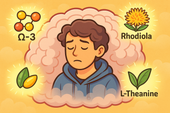
Brain Fog and Body Dysmorphic Disorder: Can Nootropic Supplements Help?
Brain fog often accompanies Body Dysmorphic Disorder, clouding focus and deepening emotional fatigue. Nootropic supplements like L-theanine, Rhodiola, and CoQ10 can help restore mental clarity, balance neurotransmitters, and bring calm energy back to the mind 🌿🧠.
-

How Stress Hormones Like Cortisol May Worsen Body Dysmorphic Disorder
Chronic stress floods the brain with cortisol — the hormone that keeps you on high alert. In Body Dysmorphic Disorder, this chemical overdrive fuels anxiety, distorts self-image, and traps the body in survival mode. Calming cortisol helps restore both peace and perspective 🌿🧠.
-

The Role of Neurotransmitters in BDD—and How Supplements May Help
Neurotransmitters like serotonin, dopamine, glutamate, and GABA shape how people with Body Dysmorphic Disorder perceive themselves. When these brain messengers fall out of balance, perception distorts — but targeted supplements can help restore calm, focus, and emotional regulation 🧠🌿.
-

What Is Body Dysmorphic Disorder? A Deeper Look at the Mind-Body Connection
Body Dysmorphic Disorder (BDD) isn’t just about appearance — it’s about perception. When brain chemistry, trauma, and stress distort self-image, the mind begins to see flaws that aren’t truly there. Healing starts by calming the nervous system and reconnecting mind and body 🪞🧠.
-
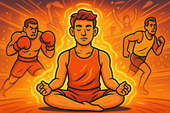
Keeping Calm in Competitive Sports: How to Train Your Mind, Body, and Chemistry for Peak Performance
Competitive pressure can overwhelm even the strongest athletes — but calm is trainable. By combining supplements like magnesium, L-theanine, and adaptogens with breathwork and mindset training, you can stay focused, balanced, and in control under any level of stress 🧠🏅.
-
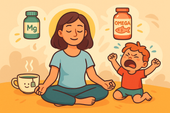
Supplements for Parents Facing Toddler Tantrums: Staying Calm When Little Emotions Run Wild
Toddler tantrums can drain even the most loving parent — but your calm is powerful. With the right supplements like magnesium, L-theanine, and ashwagandha supporting your nervous system, you can stay patient, grounded, and kind, even when emotions run high 🧸🌿.
-

Workplace Stress and Anger Management Support
Workplace stress can quickly turn into frustration — but calm is a skill you can train. By combining supplements like magnesium, L-theanine, and adaptogens with breathwork and mindset tools, you can stay focused, patient, and emotionally grounded no matter how intense the office gets 💼🌿.
-

How to Stay Patient With Family During Stressful Holidays
Holiday gatherings can stir up old stress and test your patience — but calm is possible. With nervous system support from magnesium, L-theanine, and adaptogens, plus mindful breathing and clear boundaries, you can stay centered, kind, and grounded even when family chaos unfolds 🎄💞.
-

Supplements to Keep Calm During Traffic Jams
Getting stuck in traffic doesn’t have to ruin your mood. With calming supplements like magnesium, L-theanine, and ashwagandha, you can train your body to stay relaxed and focused behind the wheel — turning gridlock into a moment of grounded patience 🚗🌿.
-
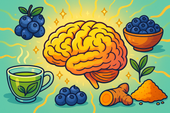
The Role of Antioxidants in Healing Brain Stress from Dissociation
Antioxidants protect the brain from the oxidative stress caused by trauma and dissociation. By neutralizing free radicals and supporting mitochondrial recovery, they help restore clarity, focus, and emotional balance — allowing the mind to heal at the cellular level 🌿🧠.
-
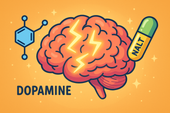
N-Acetyl L-Tyrosine (NALT) for Supporting Mental Clarity
N-Acetyl L-Tyrosine (NALT) fuels dopamine production — the neurotransmitter of focus and motivation. By supporting brain chemistry during stress, NALT helps restore mental clarity, energy, and alertness, making it easier to think clearly and feel present again ⚡🧠.
-

How Ginseng May Improve Focus and Energy in Dissociation
Ginseng helps combat the mental fatigue and fog that often come with dissociation. By supporting mitochondrial energy, balancing neurotransmitters, and regulating cortisol, it gently restores focus, motivation, and emotional presence — helping the mind reconnect with clarity and strength 🌿⚡.
-
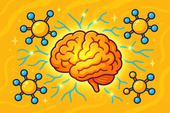
Phosphatidylserine and Dissociation: Supporting Cognitive Function
Phosphatidylserine helps calm the stress response by balancing cortisol, the body’s primary stress hormone. By lowering cortisol spikes, it protects memory, focus, and emotional stability — restoring clarity and mental presence for those struggling with dissociation 🧠🌿.
-
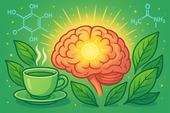
Can Green Tea Extract Help with Dissociative Brain Fog?
Green tea extract may help lift dissociative brain fog by supporting neurotransmitter balance, reducing inflammation, and enhancing energy at the cellular level. With its key compounds EGCG and L-theanine, it promotes calm focus, clarity, and emotional presence — helping you feel more alert and grounded 🍵🧠.
-

Chamomile and Lavender for Dissociative Anxiety Relief
Chamomile and lavender work together to calm dissociative anxiety by soothing the nervous system and restoring emotional safety. Their natural compounds balance cortisol, enhance GABA activity, and activate the vagus nerve — helping you feel grounded, connected, and at peace again 🌿💜.
-
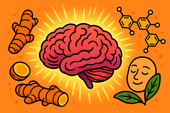
Curcumin for Inflammation and Mental Clarity in Dissociation
Curcumin, the golden compound in turmeric, does more than fight inflammation — it helps clear the mental fog often tied to dissociation. By calming neuroinflammation, balancing neurotransmitters, and supporting mitochondrial energy, curcumin can restore mental clarity, focus, and emotional presence 🌿🧠.
-
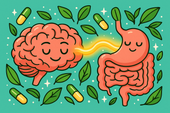
Probiotics and Dissociation: Exploring the Gut–Brain Axis
The gut–brain axis plays a vital role in emotional awareness and presence. When the microbiome is balanced, it supports serotonin production, vagus nerve activity, and calm focus. Probiotics help repair this connection — restoring safety, clarity, and the feeling of truly being in your body again 🌿🧠.
-
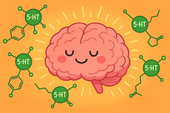
5-HTP for Dissociation: Supporting Serotonin and Emotional Stability
5-HTP helps bridge the gap between emotional numbness and stability by supporting serotonin production — the neurotransmitter that shapes mood, sleep, and sensory awareness. For people experiencing dissociation, 5-HTP may gently restore connection, presence, and emotional balance from the inside out 🌿🧠.
-
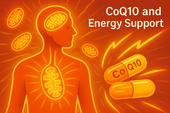
CoQ10 and Energy Support for People with Dissociation
Chronic dissociation often leaves the body running on empty — tired, foggy, and disconnected. CoQ10 helps recharge that system at the cellular level by restoring mitochondrial energy, reducing oxidative stress, and supporting the brain’s capacity to stay present. It’s energy medicine for both body and mind ⚡🧠.

















































